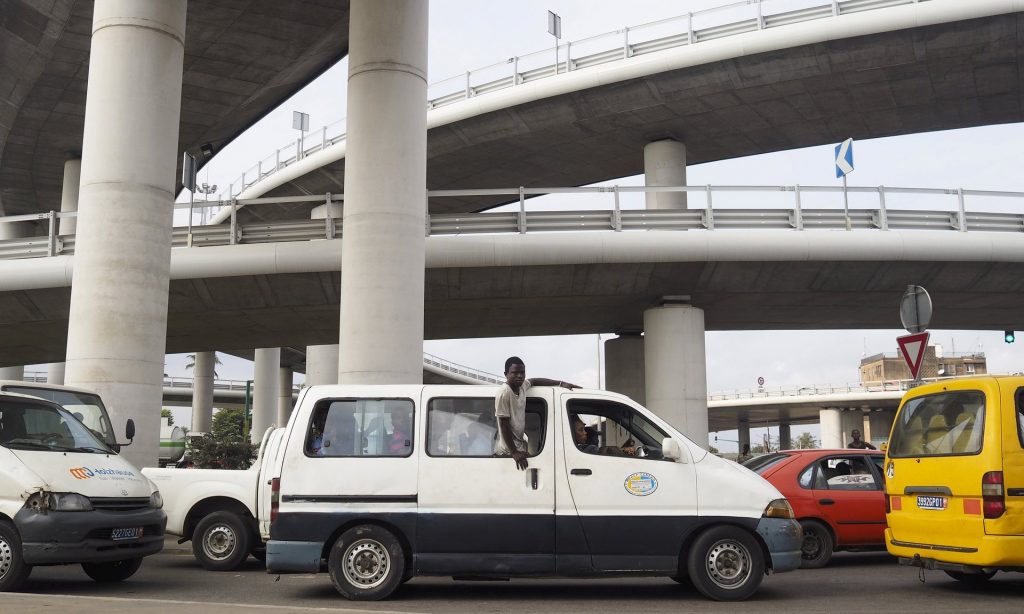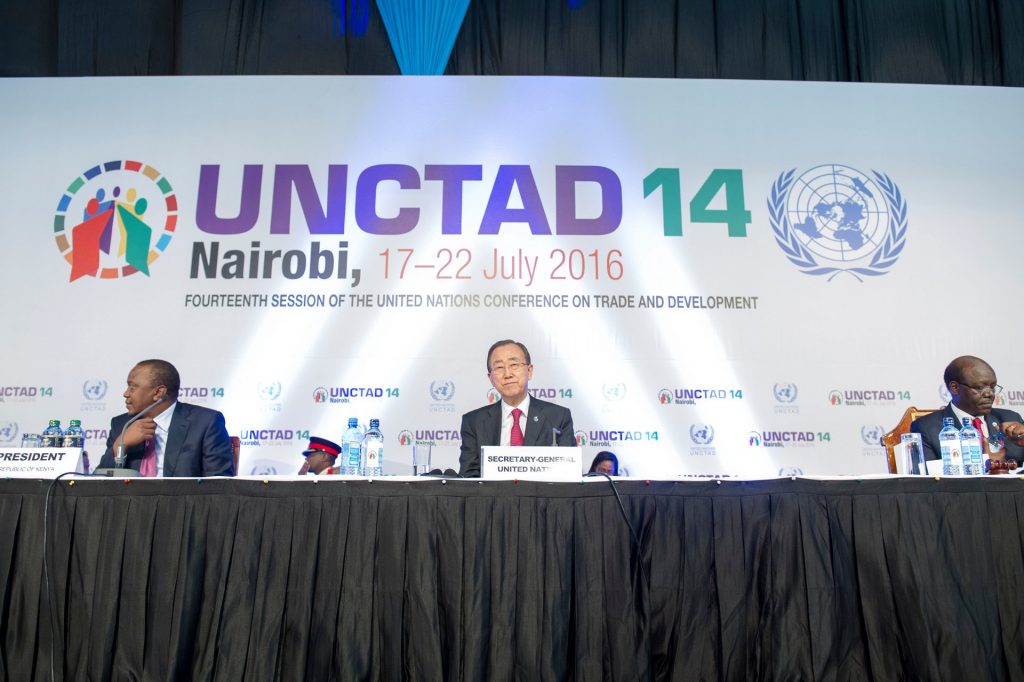
Photograph: Joe Penney/Reuters
Although African countries need to tap new streams of funding if they hope to implement an ambitious blueprint to end inequality and poverty, they must beware borrowing too much and potentially triggering debt crises such as those experienced in the 1980s and 1990s, says the UN’s trade body.
In a report assessing debt levels against the backdrop of fragile global financial markets, the UN Conference on Trade and Development (Unctad) recognised that traditional aid is not going to cover the estimated $600bn-$1.2tn (£455-£910bn) cost of implementing the sustainable development goals in Africa, but warned that plugging the gap with debt was risky.
“While Africa’s … external debt ratios currently appear manageable, their rapid growth in several countries is a concern and requires action if a recurrence of the African debt crisis of the late 1980s and the 1990s is to be avoided,” said the report, which was published on Thursday during a key Unctad meeting in Nairobi.
The study examines the delicate balance between financing development and making sure the burden of debt – both external and domestic – does not become dangerous for African economies already battered by a slowdown in commodity prices and Chinese growth.
“Debt, both domestic and external, as well as other complementary sources, cannot be excluded from Africa’s list of development finance policy options … However, Africa’s vulnerability to rapidly changing external conditions, including volatile commodity markets and unstable international financial markets, make debt a more problematic financing instrument than necessary,” it said.
Africa’s external debt stock grew by on average 10.2% a year in 2011–13, compared with 7.8% growth a year in 2006–09.
The report looked at the range of financing options available to African governments. Some borrow from private lenders, some take syndicated loans, and some have issued Eurobonds on international markets. Private firms are also borrowing more externally, with large corporate bonds being issued in Nigeria and South Africa, for example.
Mukhisa Kituyi, Unctad’s secretary general, said borrowing could play an important part in improving the lives of African citizens. “But we must find a balance between the present and the future, because debt is dangerous when unsustainable,” he said.
The report paints a somewhat sombre picture of African economic prospects, with multiple risks and fresh funds needed to tackle climate change and other challenges.
“The global economic outlook remains gloomy, as fiscal austerity underpins the deceleration in growth in the eurozone, and China is shifting to a growth strategy that implies lower but more sustainable growth rates and a rebalancing of economic activity away from investment and manufacturing towards consumption and services,” it said.
“Africa must critically assess its capacity to tackle its significant development challenges in light of its development finance requirements. This entails a redoubling of efforts to harness potential and innovative sources of finance, including those that may come from the private sector, such as through public–private partnerships, while also tackling rising levels of debt.”
Opening the Nairobi meeting on Sunday, Ban Ki-moon, the UN secretary general, said slower world trade and investment were exacerbating divisions and fuelling protectionism and even xenophobia.
“There are worrying signs that people around the world are increasingly unhappy with the state of the global economy,” said Ban, who referenced inequality, stagnant incomes, and lack of jobs, especially for youth.
“The global trade slowdown and a lack of productive investment have sharpened the deep divides between those who have benefited from globalisation, and those who continue to feel left behind,” he said. “And rather than working to change the economic model for the better, many actual and would-be leaders are instead embracing protectionism and even xenophobia.”
To achieve the 17 sustainable development goals, said Unctad, African governments should use new revenue sources, such as remittances and public-private partnerships. They should also clamp down on illicit financial flows, which cost up to $50bn a year, and totalled an estimated $854bn between 1970 and 2008.

Photograph: Rick Bajornas/UN Photo
To coincide with the Nairobi meeting, more than 400 civil society groups called on Unctad (pdf) to express support for curbing tax evasion and avoidance, and to work to eliminate illicit financial flows. The groups, including Tax Justice Network Africa (TJN-A), ActionAid International, and Fair Trade Africa, said Unctad should also push mechanisms to help countries achieve debt sustainability.
Last year, remittances to Africa increased by 1.2% to to $64bn. Unctad said these flows could be used as collateral for loans, although the flows would have to become more formal.
“The use of remittances for financial deepening and as collateral for loans or securitisation is subject to remittances being officially recorded … However, migrants generally utilise a whole range of formal and informal channels for remitting, chosen on the basis of cost, reliability, accessibility and trust. As a result, a large share of remittances is transmitted through informal channels and thus remains unrecorded,” the report said.
Some economists have warned that, after years of strong growth, remittance flows could start to slow as global economies wobble over a slew of crises, including Britain’s decision to leave the European Union. This week, the International Monetary Fund cut its forecasts for the global economy due to the likely knock-on effect of the Brexit vote on other countries, particularly in Europe.
The Unctad report urged African governments to lower current account deficits, diversify exports, combat corruption and ensure greater efficiency in spending and revenue collection. The study also stressed the importance of treading the fine line between sustainable borrowing and debt distress.
“The difficult question is how African countries may achieve the dual goal of covering their development finance needs and maintaining debt sustainability.”

